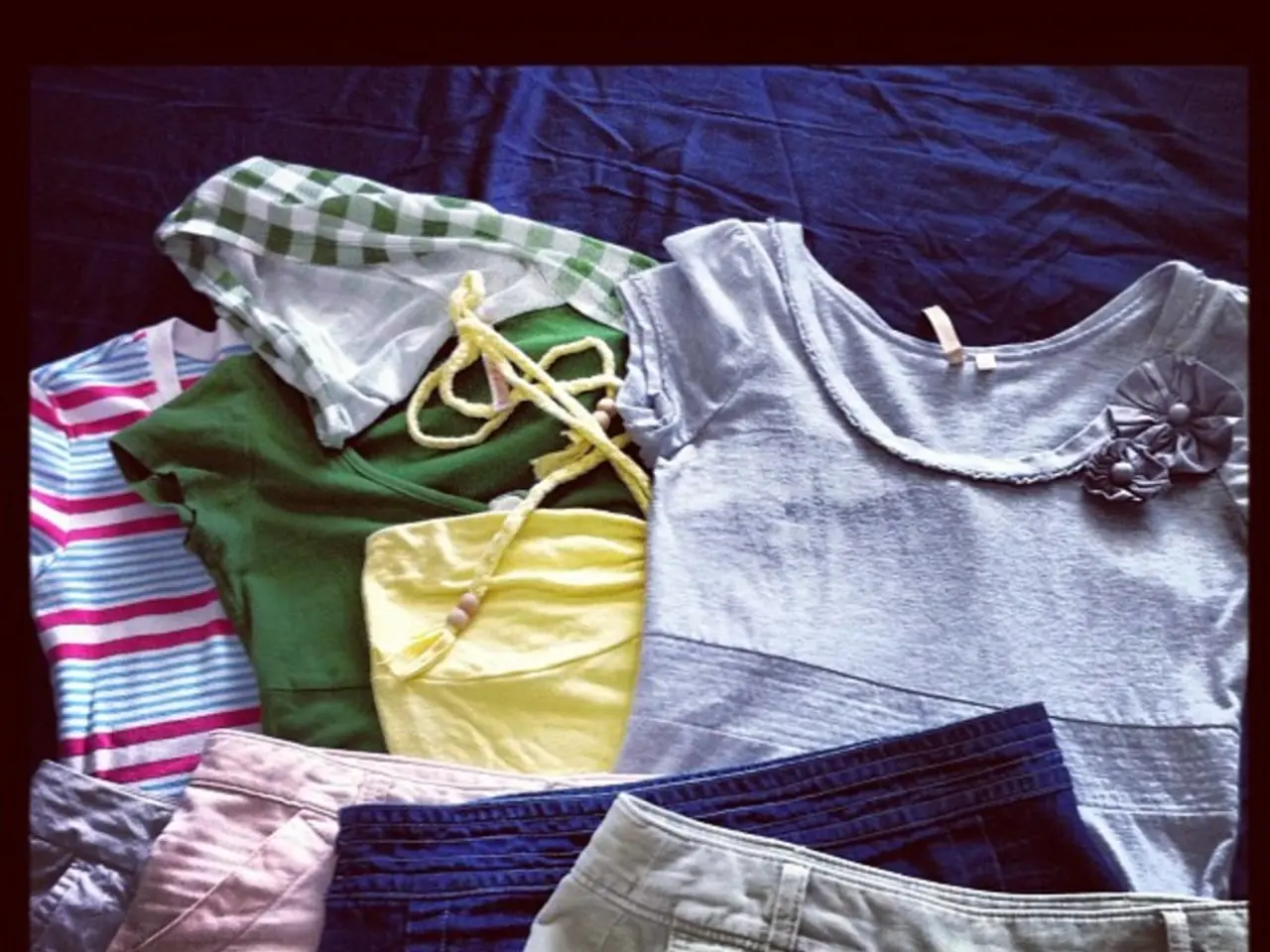The surge in popularity of environmentally-friendly clothing and fashion practices.
In the ever-evolving world of fashion, a significant movement is underway, one that blends style with substance and embraces eco-friendly choices. This isn't just a passing trend, but a full-fledged movement known as sustainable fashion.
The driving force behind this shift is a growing awareness among consumers about the environmental and social impact of their purchasing decisions. This newfound consciousness is fuelling demand for sustainable fashion, making it a profitable and preferred choice for many.
Innovative materials and technologies are playing a pivotal role in this transformation. Regenerative agriculture, digital product development, and eco-friendly materials like Tencel, organic cotton, and recycled polyester are becoming the norm. These advancements reduce waste, energy consumption, and environmental harm, making the fashion industry greener and more sustainable.
Digital solutions and virtual sampling are also revolutionising the industry. By allowing for virtual garment creation, these technologies significantly reduce material waste and carbon emissions, improve fit and quality, and reduce returns.
The rise of circular business models, such as AI-powered circular fashion, rental services, and swap cultures, is redefining how people consume fashion. These models promote reuse and recycling, minimising garment waste and contributing to a more sustainable fashion landscape.
Ethical practices and transparency are also becoming non-negotiable. Brands are now focusing on fair labor practices, non-toxic dyes, and sustainable production methods. This emphasis on ethics and transparency resonates with consumers who value both style and responsibility.
The global sustainable fashion market is growing rapidly, with significant increases in sales and market share. This growth trajectory indicates a long-term commitment to sustainable practices in the fashion industry.
Social media is playing a significant role in promoting sustainable fashion, with influencers and brands showcasing stylish, sustainable looks. Designers are creating innovative, eco-friendly fashion pieces, such as clothing made from recycled materials.
The new generation of shoppers is interested in supporting transparent, ethical, and environmentally conscious brands. Sustainable fashion is becoming a statement, with each piece having a unique flair and conveying a sense of self-awareness and commitment to a brighter future.
Many sustainable brands are prioritising fair wages for their workers. Choosing sustainable fashion is like opting for a healthy choice for the planet, similar to choosing a salad over fast food.
The demand for sustainable fashion brands is increasing due to consumers becoming more aware of their purchasing power. An estimated large amount of textile waste is produced every year, and choosing sustainable fashion is one way to combat this issue.
The fashion industry is one of the top polluters globally, responsible for a significant amount of waste and greenhouse gas emissions. Brands are transforming their practices to become more sustainable, using organic materials and implementing zero-waste designs.
Vintage shops and upcycled collections are becoming more popular due to the appeal of one-of-a-kind, character-filled items. Sustainable fashion doesn't compromise style; it's an explosion of innovation.
In conclusion, sustainable fashion is no longer optional; consumers are increasingly demanding clothes that are both fashionable and environmentally friendly. Every piece of sustainable clothing can serve as a testament to one's values in today's conscious fashion landscape.
Sustainable living extends beyond fashion, influencing other lifestyle choices such as home-and-garden and fashion-and-beauty as well. This trend towards eco-friendliness in fashion is not just about fashion-forward aesthetics, but also about fostering sustainable living practices that prioritize reducing waste and environmental harm.
Embracing sustainable living means making conscious decisions in various aspects of life, including the clothing we wear and the products we use, all while promoting ethical practices and a more mindful approach to consumption. The growing demand for sustainable fashion brands is evidence that consumers are recognizing the impact of their purchasing power on the environment and are willing to make a change, contributing to a greener and healthier future.





